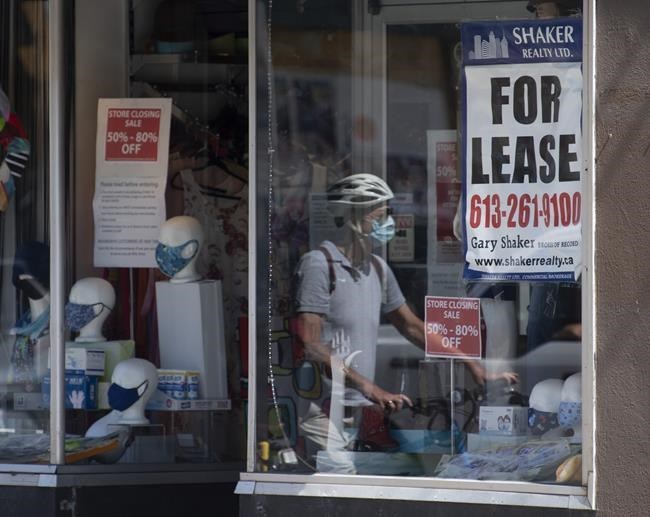OTTAWA — The Trudeau Liberals' latest attempt at providing emergency aid for the country's hard-hit companies and their employees is facing demands for change from businesses and opposition MPs.
The Liberals tabled a bill Monday that would extend the federal wage subsidy and stop a previously planned slide in the value of payments.
The bill also creates a new commercial rent-relief program to provide aid directly to businesses. The Liberals' last version relied on landlords to apply for help, which they didn't do in great numbers.
Prime Minister Justin Trudeau said the package has been designed to be flexible enough to help companies facing different realities.
How many businesses need the help and how much of the aid gets spent depends on the path of the pandemic, said Finance Minister Chrystia Freeland.
She also spoke about the need to keep aid flowing particularly to those affected by lockdowns. She warned that other jurisdictions have seen stimulus spending wasted by rolling back restrictions too far, too fast and having to impose fresh lockdowns.
"We will be spending more … if it turns out that the second wave is really, really rough, and people need more support," she said.
"If we get through it, if we do the right thing … and we're all able to keep working, then we will spend less on these programs."
The draft legislation has been met with mixed reactions from business groups that have been begging the government for extra aid to help cover costs while their revenues lag.
For others, the concern stems from new restrictions that have limited the number of customers a restaurant can hold, or closures ordered by public health officials to slow the spread of the novel coronavirus.
The Conservatives used their time on the House of Commons agenda Tuesday to ask the Liberals for extra flexibility in the federal wage subsidy and commercial rent-relief programs, and for a pause until next June on federal audits of small businesses.
"Can you imagine a small business holding on by a thread and having the tax collector descend on you with an audit? I think it's horrible. It's unfair," Conservative Leader Erin O'Toole said during a morning press conference.
"We're trying to show that we can improve the response … and I hope the government sees this."
The government's bill, known as C-9, would revamp the rent-relief program to cover up to 65 per cent of rent or commercial mortgage interest on a sliding scale based on revenue declines, with an extra 25 per cent available to the hardest-hit firms.
The Canadian Federation of Independent Business, which represents thousands of small and medium-sized companies, sounded a positive note about the legislation but wanted to make sure all firms subject to lockdowns or restrictions would qualify for the extra help.
The association also asked the Liberals to allow companies to apply for rent relief retroactively if their landlords failed to apply in the last few months.
"Rent relief is critical to the survival of many Canadian small businesses, especially with some provinces entering a second lockdown and requiring businesses to close again," said Laura Jones, the association's executive vice-president.
Alla Drigola of the Canadian Chamber of Commerce said the legislation, as written, doesn't remove arbitrary caps on rent relief that had been a key concern raised with the Liberals as the government revamped the program.
"This punishes businesses that have several locations, especially those in expensive downtown cores," said Drigola, the chamber's director of parliamentary affairs and of policy for small and medium enterprises.
She also said that businesses are hopeful the government will up the base wage subsidy from 65 per cent to at least 75 per cent, which is what the Liberals provided during the first wave of the pandemic.
MPs on the House of Commons status of women committee were told in a Tuesday meeting that the wage subsidy should be extended to include hiring in home daycares so female entrepreneurs can return to work.
"Female business owners continue to indicate that child care is their No. 1 issue," said Penny Wise, president of 3M Canada. "These are some easy, practical and incredibly helpful actions that the government could undertake now."
The latest federal figures on the wage subsidy show it has paid out almost $45.3 billion in subsidies to 340,210 different companies.
This report by The Canadian Press was first published Nov. 3, 2020.
Jordan Press, The Canadian Press




